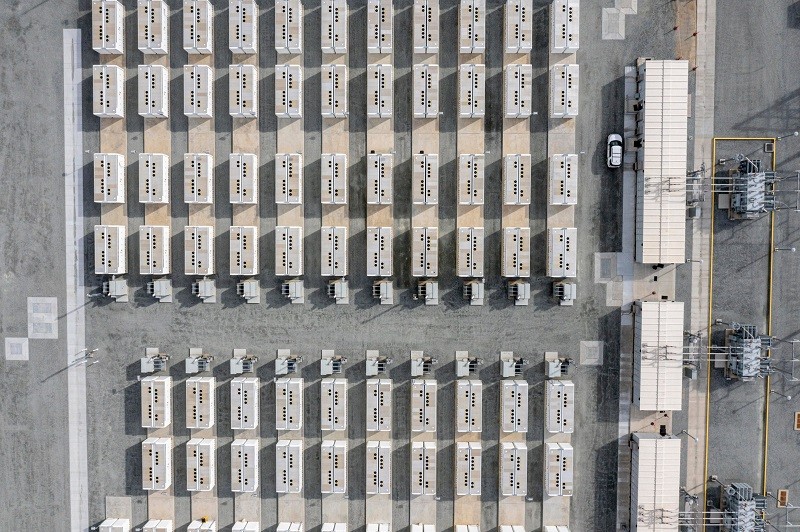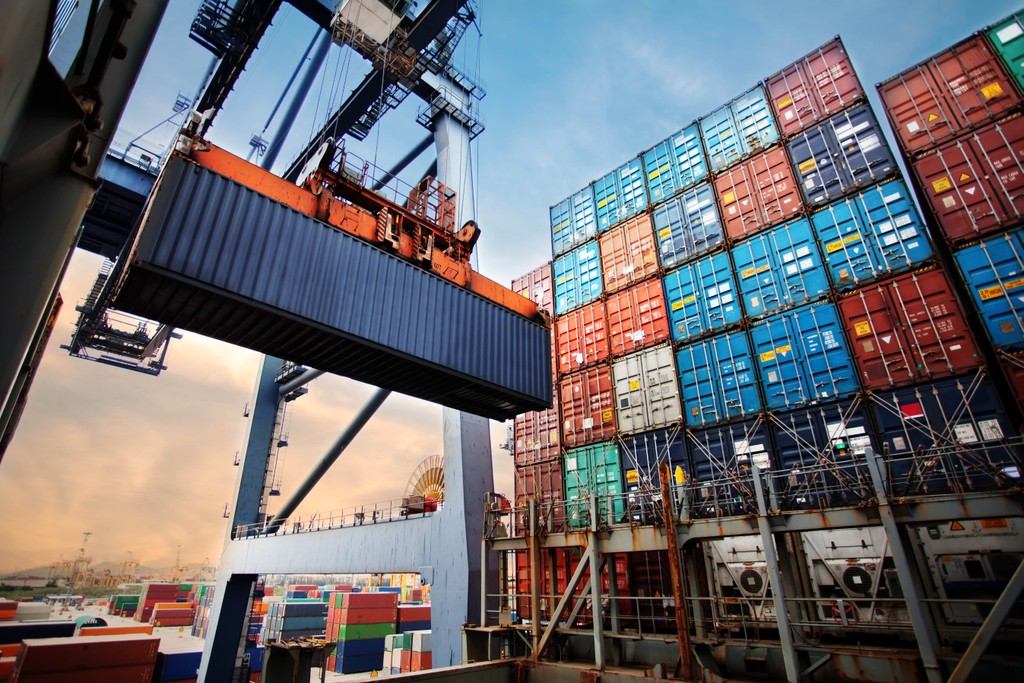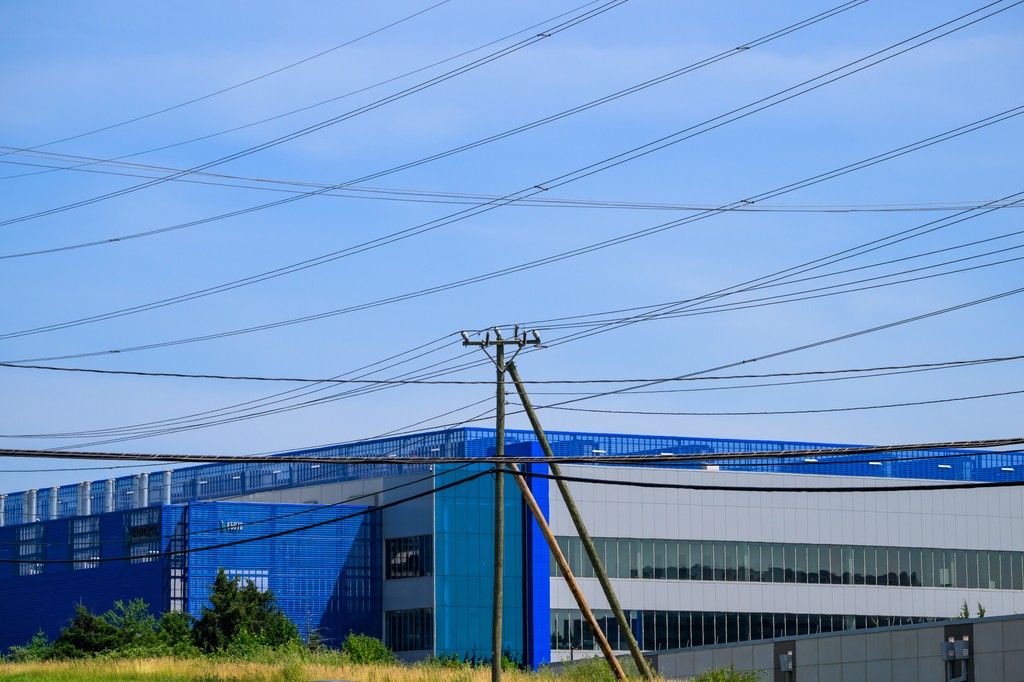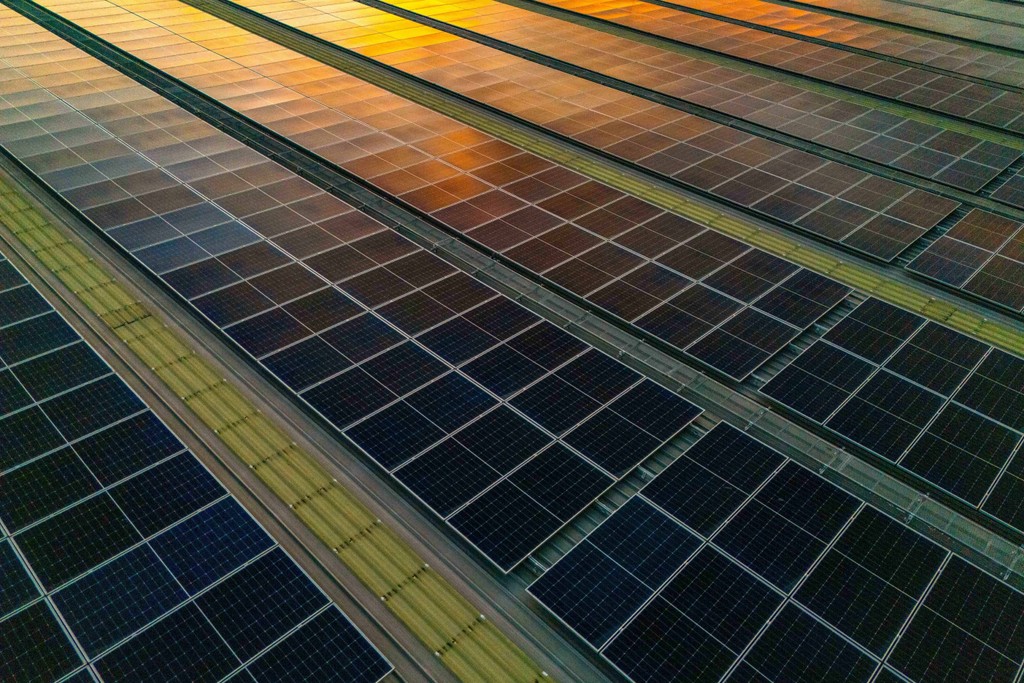PRESS RELEASE
Global Low-Carbon Energy Technology Investment Surges Past $1 Trillion for the First Time
Defying supply chain disruptions and macroeconomic headwinds, 2022 energy transition investment jumped 31% to draw level with fossil fuels: BloombergNEF
London, January 26, 2023 – Global investment in the low-carbon energy transition totaled $1.1 trillion in 2022 – a new record and a huge acceleration from the year before – as the energy crisis and policy action drove faster deployment of clean energy technologies, according to a new report from research firm BloombergNEF (BNEF). In another first, investment in low-carbon technologies appears to have reached parity with capital deployed in support of fossil fuel supply.
Energy Transition Investment Trends is BNEF’s annual accounting of how much funding businesses, financial institutions, governments and end-users are committing to the low-carbon energy transition.
Almost every sector covered in the report achieved a new record level of investment in 2022, including renewable energy, energy storage, electrified transport, electrified heat, carbon capture and storage (CCS), hydrogen and sustainable materials. Only nuclear power investment did not set a record, staying broadly flat.
Renewable energy, which includes wind, solar, biofuels and other renewables, remained the largest sector in investment terms, achieving a new record of $495 billion committed in 2022, up 17% from the year prior. However, electrified transport, which includes spending on electric vehicles and associated infrastructure, came close to overtaking renewables, with $466 billion spent in 2022 – an impressive 54% increase year-on-year.
Hydrogen is the sector that received the least financial commitment at just $1.1 billion in 2022 (0.1% of the total), despite strong interest from the private sector and growing policy support. Hydrogen is, however, the fastest-growing sector with investment more than tripling over the year before.

BNEF’s data show that China was by far the leading country for attracting energy transition investment, accounting for $546 billion or nearly half of the global total. The US was a distant second at $141 billion, while the EU would have been second if treated as a single bloc, at $180 billion. Germany retained its third place, while the UK dropped one place to fifth as France climbed to fourth.
Transition investment matches fossil fuels for the first time; ramp-up needed for net zero
Within the report BNEF also makes a top-down estimate of global fossil fuel investments, including upstream, midstream, downstream and unabated fossil power generation. This figure, arrived at independently for the purpose of comparison, is estimated at $1.1 trillion in 2022 – the same figure as the energy transition investment total. This marks the first time that global energy transition investment has matched fossil fuel investment, and comes despite fossil investment growth triggered by last year’s energy crisis.
“Our findings put to bed any debate about how the energy crisis will impact clean energy deployment,” said Albert Cheung, Head of Global Analysis at BloombergNEF. “Rather than slowing down, energy transition investment has surged to a new record as countries and businesses continue to execute on transition plans. Investment in clean energy technologies is on the brink of overtaking fossil fuel investments, and won’t look back. These investments will drive short-term job creation and help to address medium-term energy security objectives. But much more investment is needed to get on track for net zero in the long term.”
Despite 2022’s impressive results, global investment in lower-carbon technologies remains woefully short of what is needed to confront climate change. For the world to get on a 2050 “net-zero” CO2 emissions trajectory, such investment must immediately triple, BNEF estimates. Including the additional $274 billion invested in the power grid, energy transition investment hit $1.38 trillion in 2022. By comparison, the world must invest an annual average of $4.55 trillion for the remainder of this decade in order to get on track under BNEF’s Net Zero Scenario.
Climate-tech corporate finance down
The report also finds that climate-tech corporate finance totaled $119 billion in 2022. This category of investment, not included in the $1.1 trillion above, describes new equity financing raised by companies in the climate-tech space, either from public markets or private investors. The figure represents a 29% decline from the year before, driven entirely by a fall in public share offerings during a challenging year in global equity markets. Despite the turmoil, venture capital and private equity financings held up well, growing 3% on the year.
Supply chain and manufacturing investment rises to $79 billion, dominated by China
BNEF also reports that clean energy factory investment (investments in manufacturing facilities for clean energy technologies) grew to $78.7 billion in 2022, up from $52.6 billion in 2021. Manufacturing facilities for batteries and related components formed the largest share of this at $45.4 billion, while solar factories attracted $23.9 billion. China accounted for 91% of manufacturing investments in 2022, in spite of efforts from other countries to capture more of the global clean energy opportunity.
Between 2023-26 BNEF estimates that factory investment for clean energy technologies only needs to average $35 billion per year, to get on track for its Net Zero Scenario. “Manufacturing capacity for clean energy technologies is unlikely to be the major bottleneck to achieving net zero,” said Antoine Vagneur-Jones, BNEF’s Head of Trade and Supply Chains research. “However, from a supply chain diversification point of view, the picture has not changed much. China is investing by far the most in building out its clean energy supply chain, and it remains to be seen if other regions can capture significant market share.”
The US in particular has seen a wave of announcements of new or expanded factories for clean energy technologies in recent months; however these are not yet represented in BNEF’s figures, which only account for successfully commissioned factory projects.
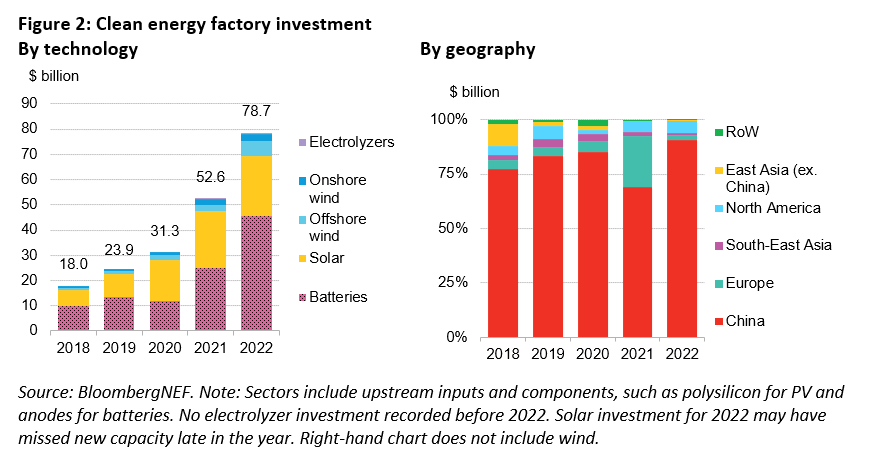
An abridged version of Energy Transition Investment Trends 2023 can be downloaded from this page. BNEF subscribers can find the full report on the client website and on the Bloomberg Terminal.
Contact
Oktavia Catsaros
Bloomberg
+1-212-617-9209
ocatsaros@bloomberg.net
About Bloomberg
Bloomberg is a global leader in business and financial information, delivering trusted data, news, and insights that bring transparency, efficiency, and fairness to markets. The company helps connect influential communities across the global financial ecosystem via reliable technology solutions that enable our customers to make more informed decisions and foster better collaboration. For more information, visit Bloomberg.com/company or request a demo.

